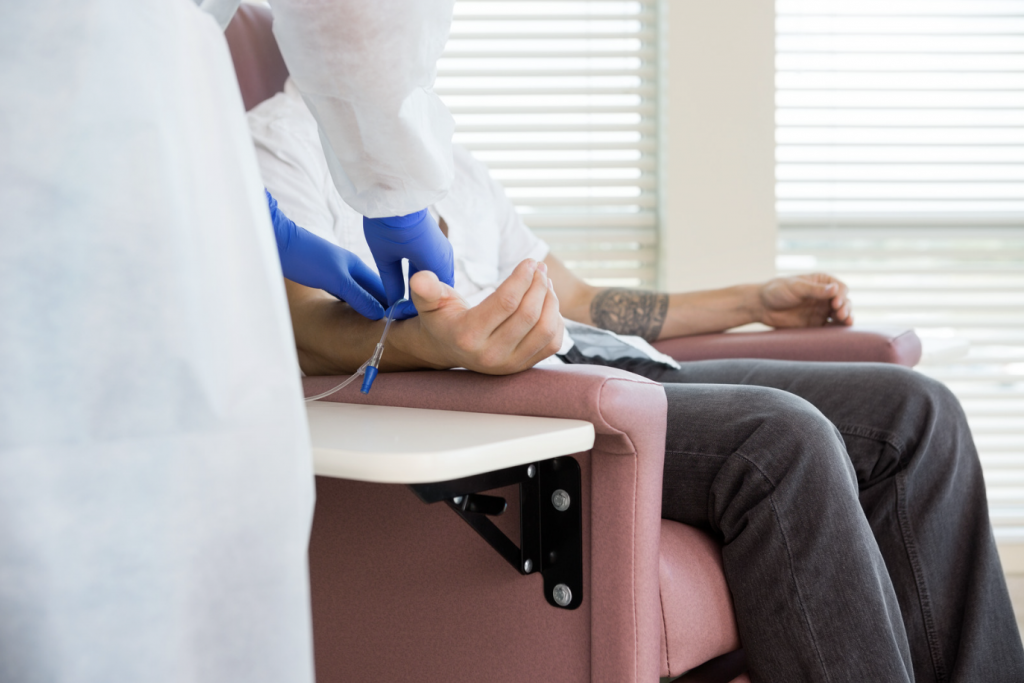Completing chemotherapy is a significant milestone in the journey of cancer patients. It marks the end of a rigorous and often grueling treatment process that can span several months or even years. While the focus during treatment is understandably on managing side effects and persevering through each session, what happens after chemo often goes overlooked. In this blog, we’ll delve into what no one tells you about ending chemo and provide insights into how to navigate this critical phase of your cancer journey.
The Emotional Rollercoaster
Ending chemotherapy can be a double-edged sword emotionally. On one hand, there’s a sense of relief and accomplishment for having completed a challenging treatment regimen. On the other hand, it’s common to experience a complex mix of emotions, including fear, anxiety, and uncertainty. You may have spent months or even years in a structured routine of medical appointments and treatments, and suddenly, that familiar support system is no longer as constant.
It’s crucial to acknowledge these emotions and seek support. Whether through therapy, support groups, or talking with loved ones, addressing the emotional aftermath of chemo is as vital as the physical recovery.
Physical Recovery Takes Time
While the last day of chemo might feel like the finish line, it’s more like the starting line of a different race—recovery. It’s essential to understand that it may take several weeks or even months for your body to regain strength and for your immune system to bounce back. Fatigue, a common side effect of chemotherapy, may persist, and it’s important to listen to your body and not push yourself too hard too soon.
Your medical team will play a crucial role in monitoring your progress and addressing any lingering side effects or new concerns that may arise during the recovery phase. Be patient with your body, and remember that healing takes time.
Fear of Recurrence
One of the most significant concerns for cancer survivors is the fear of recurrence. While you may be cancer-free after completing chemo, the fear of the disease returning can be all-consuming. It’s essential to have open and honest conversations with your medical team about this fear. They can provide guidance on surveillance and monitoring to catch any potential recurrence early, easing your anxiety.
Additionally, finding healthy ways to cope with this fear is crucial. Engaging in mindfulness practices, staying active, and maintaining a healthy lifestyle can all contribute to a sense of control and well-being.
Physical Changes and Body Image
Chemotherapy can bring about several physical changes that may not be immediately apparent until after treatment ends. Hair loss, changes in skin tone, weight fluctuations, and even long-term changes in taste perception are some of the common issues. Adjusting to these changes can be challenging, and it’s essential to be kind to yourself during this process.
Support from a therapist or a support group can be invaluable in addressing body image concerns. Remember that your body has fought a significant battle, and every mark and change is a testament to your strength and resilience.
Relationships May Evolve
Cancer has a way of reshaping relationships. While you may receive an outpouring of support during treatment, some relationships may evolve or change after chemo ends. Friends and family who were initially very present may gradually step back as they assume you’re “back to normal.” This transition can be challenging to navigate.
Communication is key in these situations. Express your needs and feelings to your loved ones, and don’t be afraid to seek support from others who have gone through similar experiences. Many cancer support groups provide resources on coping with changes in relationships post-chemo.
Reconnecting with Life’s Goals
Ending chemotherapy often prompts a deep reevaluation of life’s priorities and goals. After facing mortality and undergoing a life-altering experience, you may find that your values and aspirations have shifted. This can be a time to rekindle old passions or explore new ones.
Consider taking stock of your goals and aspirations, and use this opportunity to make positive changes in your life. Whether it’s pursuing a new career, rekindling a hobby, or fostering stronger relationships, this phase can be a time of personal growth and transformation.
Navigating the Unknown
Life after chemotherapy is a journey into the unknown. While this phase can be filled with uncertainty and challenges, it’s also a time of hope, renewal, and personal growth. Embrace the opportunity to rebuild your life on your terms and seek the support you need along the way. Remember that you are not alone in this journey, and there is a community of cancer survivors who understand and can offer guidance and encouragement.
In conclusion, ending chemotherapy is not just the end of treatment; it’s the beginning of a new chapter in your life. Emotions, physical changes, and evolving relationships are all part of the post-chemo landscape. It’s essential to address these aspects with patience, self-compassion, and the support of medical professionals, friends, and family. Life after chemo can be a time of growth, renewal, and a reconnection with your goals and aspirations. Embrace it as your next step toward a brighter future.

